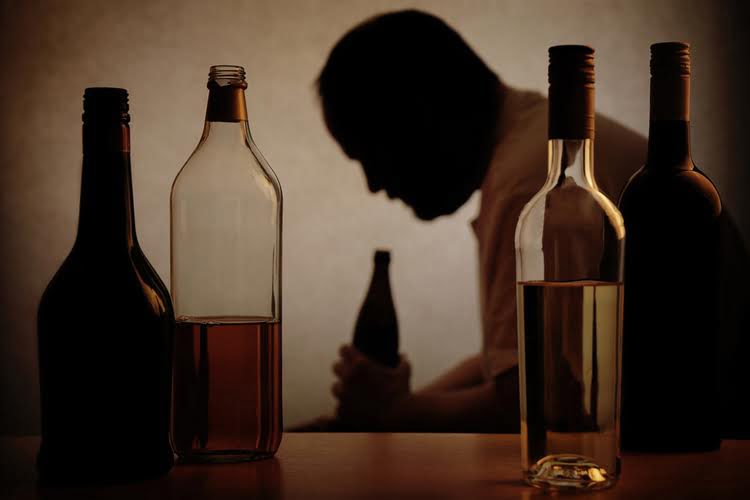Sartorius AG: Good Long-Term Play; But ‘Wait And See’ Approach More Conservative SARTF
The Federal Plan for Equitable Long-Term Recovery and Resilience (Federal Plan for ELTRR) lays out an approach for federal agencies to cooperatively strengthen the vital conditions necessary for improving individual and community resilience and well-being nationwide. Taken together, these studies provide promising evidence to suggest that recovery-supportive housing can be both cost-effective and effective in supporting recovery. A clinical trial of an intervention in which people are randomly assigned either to a group receiving the intervention being studied or to a control group receiving a standard intervention, a placebo (a medicine with no therapeutic effect), or no intervention.
- The negative thinking that underlies addictive thinking is usually all-or-nothing thinking, disqualifying the positives, catastrophizing, and negatively self-labeling [9].
- Long-term rehabs typically cost more than outpatient or short-term rehabs since a person stays in the facility, stays longer and there may be more comprehensive services offered.
- Relapse can be a severe setback, disrupting one’s recovery journey and posing physical, emotional, and psychological risks.
- The single most popular path is the use of peer support groups in the community.
Treatments Used at Long-Term Rehab Centers

A third is establishing and maintaining a strong sense of connection to others; support helps people stay on track, and it helps retune the neural circuits of desire and goal-pursuit. Learning new coping skills for dealing with unpleasant feelings is another pillar of recovery. Health and social service providers, funders, policymakers, and most of all people with substance use disorders and their families need better information about the effectiveness of the recovery options reviewed in this chapter.
Sartorius AG: It’s A Good Long-Term Play, But ‘Wait And See’ Approach Is More Conservative Now
Leslie Riley, MS, LCDC-I, CPRSS, is a peer recovery specialist who works on Navigator, Menninger’s recovery management program. It is important to remember that you are not there to do the work for your loved one as a caregiver. Goal setting should be a collaborative process as you assist your loved one through setting specific and challenging, yet attainable, goals. Once goals have been set, being supportive and encouraging of the choices that your loved one has made can help them stay on a path to recovery.
What Are Long-Term Rehab Programs?
The vital conditions identify the factors that people depend on to reach their full potential, organized into 7 categories. Discover the latest advancements in treating obsessive-compulsive disorder, including innovative cognitive-behavioral and strategic therapies designed to enhance patient outcomes. Neuroscientist Adi Jaffe, Ph.D., who himself recovered from addiction, outlines five steps. Life takes its toll on all of us, and everyone, whether or not they struggle with addiction, chronic pain, or any other serious condition, sustains a certain degree of damage along the way.
- Research should determine the efficacy of peer supports including peer recovery support services, recovery housing, recovery chronic disease management, high school and collegiate recovery programs, and recovery community centers through rigorous, cross-site evaluations.
- “There are a lot of reasons for this,” explains HEAL-funded clinical psychologist Aaron Hogue, Ph.D., of the New York City-based Partnership to End Addiction.
- Second, mind-body relaxation helps individuals let go of negative thinking such as dwelling on the past or worrying about the future, which are triggers for relapse.
The Stages of Relapse
The best way to find out what your coverage would be for treatment is to contact your insurance provider, or to reach out to the treatment center you plan to attend. A study of 17 recovery high schools found that most had small and rapidly changing enrollments, ranging from 12 to 25 students. Rates of abstinence from “all alcohol and other drugs” increased from 20 https://edutechinsider.com/top-5-advantages-of-staying-in-a-sober-living-house/ percent during the 90 days before enrolling to 56 percent since enrolling. A rigorous outcomes study is nearing completion that will give a better idea of the impact of recovery high schools. In 2010, SAMHSA rolled out Recovery Supports as one of its Strategic Initiatives, highlighting the importance of recovery as a valuable component in the continuum of care.
- Recovery community centers are different from professionally-operated substance use disorder treatment programs because they offer support beyond the clinical setting.
- Alternatively, once a milestone is reached, individuals feel they have recovered enough that they can determine when and how to use safely.
- Clinicians can distinguish mental relapse from occasional thoughts of using by monitoring a client’s behavior longitudinally.
Identify other factors in your life—relationships, work—that can help take the focus off addictive behaviors. Saying a mantra, substituting thoughts of recovery goals, praying, reading something recovery-related, reaching out to someone supportive—all are useful tactics. Planning in advance a way out of high-risk situations—whether an event, a place, or a person—helps support intentions in the face of triggers to use. The same dynamic operates in the process of recovery—sometimes things are unclear and confused and confusing. Rather than getting twisted up because we are struggling and uncertain, if we hang in there and remain mindfully accepting, open to possibility, and patient—the mud will settle and the water (and how to best proceed) will again become clear. Although, obviously there are exceptions, people do not generally experience serious problems in living by accident or coincidence.
Findings from this study attest to the fact that individuals with extensive substance use histories can and do recover to become productive members of society. The growth stage is about developing skills that individuals may have never learned and that predisposed them to addiction [1,2]. The repair stage of recovery was about catching up, and the growth stage is about moving forward.
Arthritis in Sportspeople: Types, Causes, and Management Strategies
For many experts, the key components of addictive disorder are compulsive drug use that continues despite detrimental consequences, and the development of cravings with the inability to control use. Addiction develops over time, in response to repeated substance use, as the action of drugs changes the way the brain responds to rewards and disables the ability to control desire for the drug. Addiction is a chronic, progressive, and potentially fatal disorder, similar to other chronic life-threatening conditions such as diabetes, asthma, and heart disease. However, it can be treated and managed successfully through the process of recovery, allowing those with it to live long, full, and healthy lives. ” These percentages translate to roughly 25 million United States adults being in remission.29 It is not yet known what proportion of adolescents defines themselves as being in recovery.
Denied users will not or cannot fully acknowledge the extent of their addiction. Denied users invariably make a secret deal with themselves that at some point they will try using again. Important milestones such as recovery anniversaries are often seen Sober House as reasons to use. Alternatively, once a milestone is reached, individuals feel they have recovered enough that they can determine when and how to use safely. It is remarkable how many people have relapsed this way 5, 10, or 15 years after recovery.






